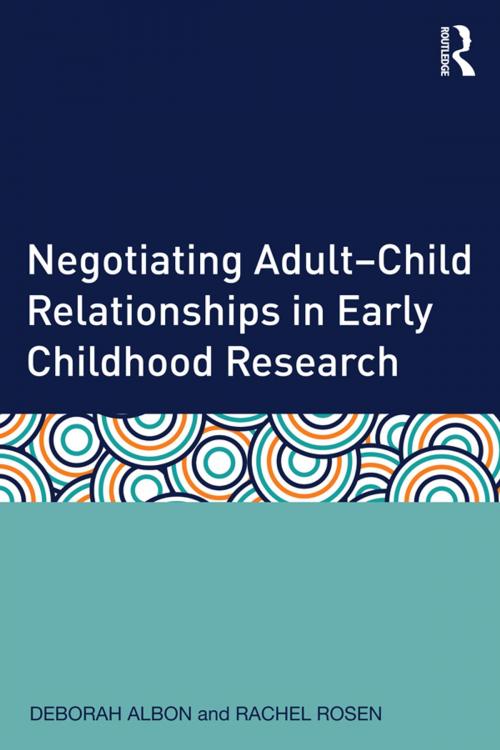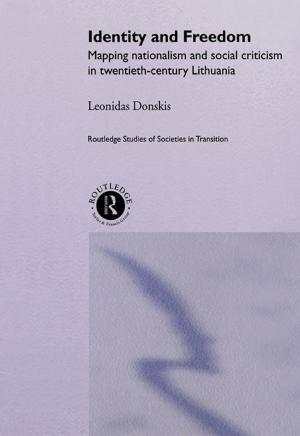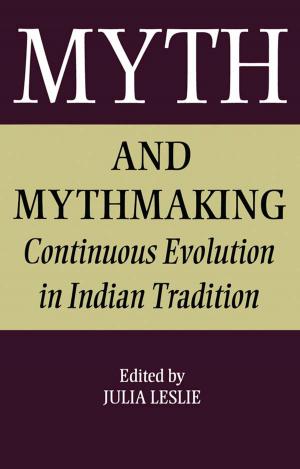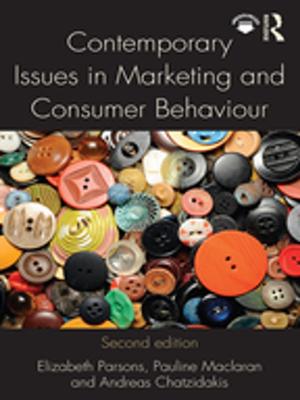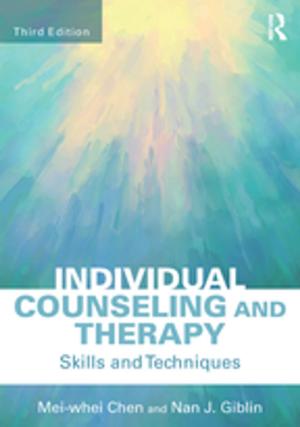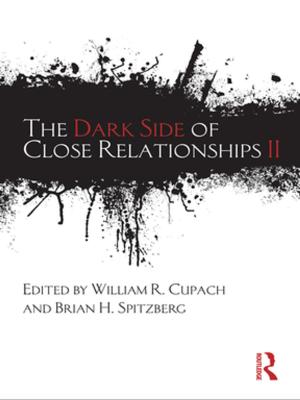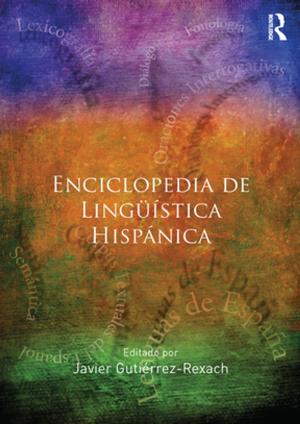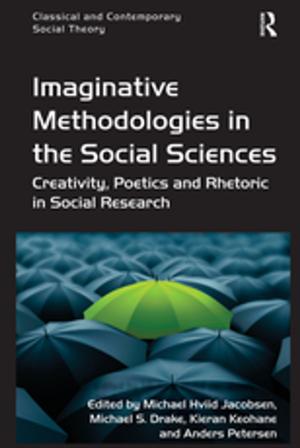Negotiating Adult-Child Relationships in Early Childhood Research
Nonfiction, Reference & Language, Education & Teaching, Preschool & Kindergarten| Author: | Deborah Albon, Rachel Rosen | ISBN: | 9781136211546 |
| Publisher: | Taylor and Francis | Publication: | August 15, 2013 |
| Imprint: | Routledge | Language: | English |
| Author: | Deborah Albon, Rachel Rosen |
| ISBN: | 9781136211546 |
| Publisher: | Taylor and Francis |
| Publication: | August 15, 2013 |
| Imprint: | Routledge |
| Language: | English |
Negotiating Adult–Child Relationships in Early Childhood Research presents a substantive critique of technicist and neoliberal approaches to ethics through an exploration of the complicated and often ‘messy’ situations faced in negotiating relationships in research with children. Despite growing acknowledgement of their centrality, relationships between adult researchers and very young participants have been neglected and under-theorised, and in response, this book offers a comprehensive conceptualisation of adult–child research relationships through examination of questions, including:
- How do power and inequity impact on adult–child research relationships?
- What does it mean for relationships when researchers ‘intervene’ in the field?
- How do bodies matter in research relationships?
- What does an emphasis on relationships with young children mean for the research process?
Drawing on data from their own research, the authors contend that relationships are part of a wider web of social relations and space–time configurations. They propose and develop a relational ethics of answerability and social justice, inspired by the work of Bakhtin and, in addition, explore the way material bodies come to matter, the ambiguity of consent in educator-research, and the risks and possibilities of research relationships. Chapters include innovative formulations of reciprocity, ‘sensing practices’, and political-ethical responsibility.
This book contributes to current debates about research with young children, offering an incisive and thorough exploration of the importance of relationships to the research process. Relevant for international audiences, this book is essential reading for early childhood students and educators, researchers, and lecturers with an interest in research with children.
Negotiating Adult–Child Relationships in Early Childhood Research presents a substantive critique of technicist and neoliberal approaches to ethics through an exploration of the complicated and often ‘messy’ situations faced in negotiating relationships in research with children. Despite growing acknowledgement of their centrality, relationships between adult researchers and very young participants have been neglected and under-theorised, and in response, this book offers a comprehensive conceptualisation of adult–child research relationships through examination of questions, including:
- How do power and inequity impact on adult–child research relationships?
- What does it mean for relationships when researchers ‘intervene’ in the field?
- How do bodies matter in research relationships?
- What does an emphasis on relationships with young children mean for the research process?
Drawing on data from their own research, the authors contend that relationships are part of a wider web of social relations and space–time configurations. They propose and develop a relational ethics of answerability and social justice, inspired by the work of Bakhtin and, in addition, explore the way material bodies come to matter, the ambiguity of consent in educator-research, and the risks and possibilities of research relationships. Chapters include innovative formulations of reciprocity, ‘sensing practices’, and political-ethical responsibility.
This book contributes to current debates about research with young children, offering an incisive and thorough exploration of the importance of relationships to the research process. Relevant for international audiences, this book is essential reading for early childhood students and educators, researchers, and lecturers with an interest in research with children.
